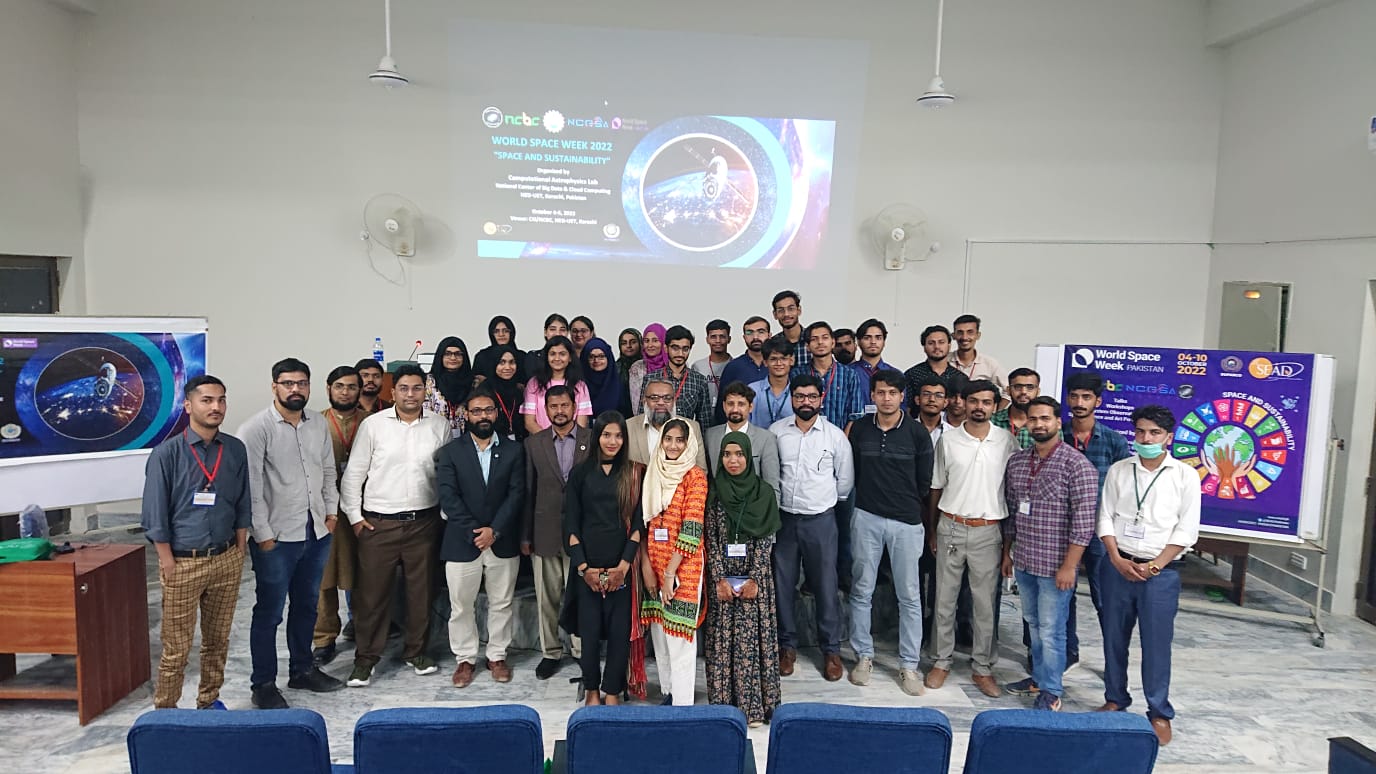This week – global events are being hosted for World Space Week 2022– “To celebrate the advancement of science and technology, and the contributions to the betterment of the human condition”. The events start from Oct 04 -10 commemorating the launch of the First Satellite Sputnik-1 (Oct 4, 1857) and the signing treaty for peaceful use of Space (Oct 10, 1967). Remembering Pakistan, as one of the first nations to develop its space agency- SUPARCO, in 1961.
Pakistan, today is not a very scientifically advanced nation, due to its political and economical unrest, throughout the decades, pure sciences are not very popular among the youth, that is the basic thriving need for a strong space sciences program academically, in terms of research or industrially. But, few individuals or organizations, aim their best for celebrating and increasing scientific outreach and events. This year, fortunately after the end of the pandemic, we had physical events with lesser restrictions and constraints, yet I had the privilege to attend and celebrate the scientific endeavors stretched by the space community within the universities of Karachi.
NASA Space Apps Challenge 2022
Before the start of WSW 2022, I attended NASA Space Apps Challenge 2022, held on October 1-2, 2022, at Salim Habib University, a private sector university, with RaheQamar’s flagship hosted the event for the first time on a physical and massive scale, hosting nearly all the science and engineering university students, and many other college and school students participated in the NASA’s Hackathon. The event was open for participation globally in more than 181 countries and territories, and thanks to RaheQamar and Hassan Bin Zaki, who have been hosting it for the 4th consecutive time in Pakistan.
The event was open to hosting participants from as young as 06 to 65 years of age. It was a huge call for awareness of Artificial Intelligence and Data Science applications within the Space Industry. All the major cities of the country hosted the event. At Karachi, we witnessed nearly 1000+ participants present at the event venue, which was Salim Habib University, Karachi, with respect to a technical and informative event of such a nature.
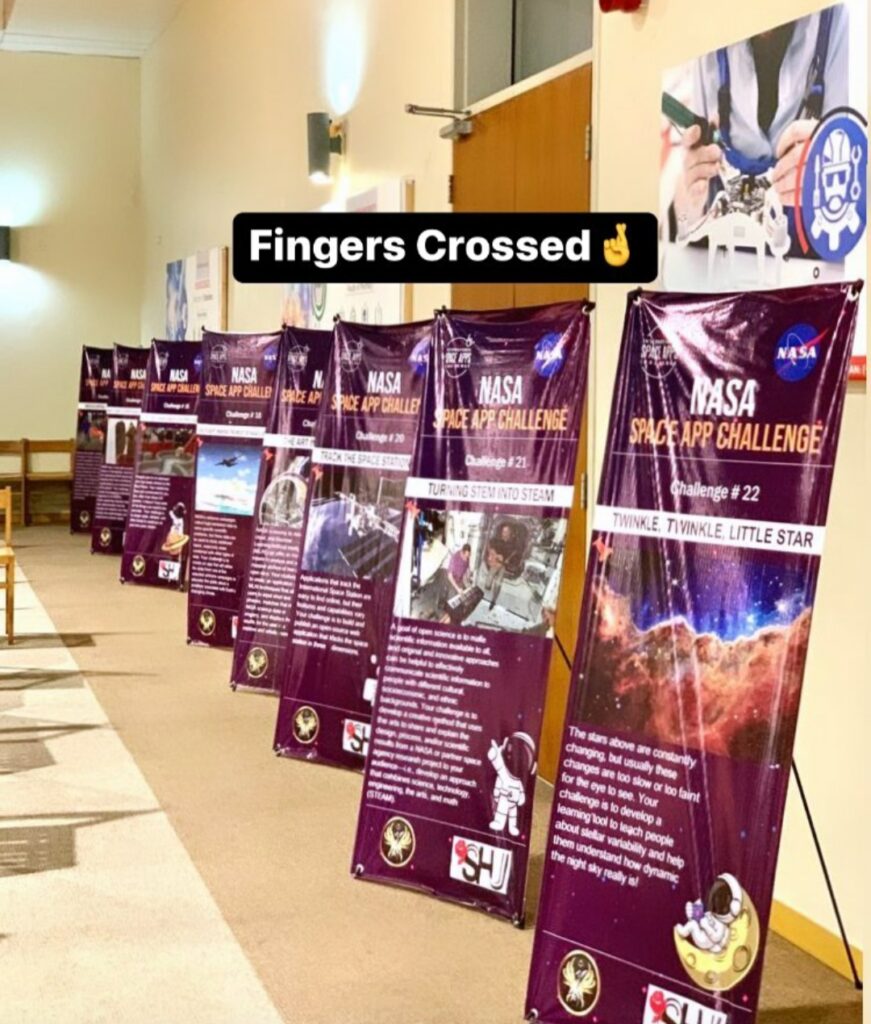

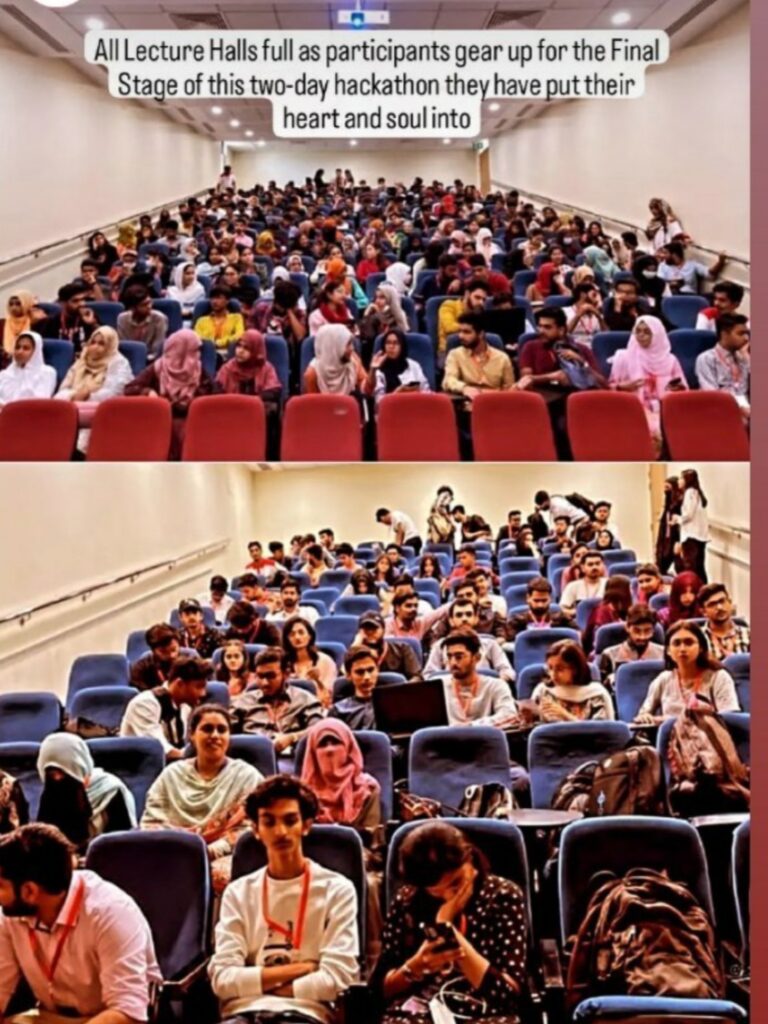
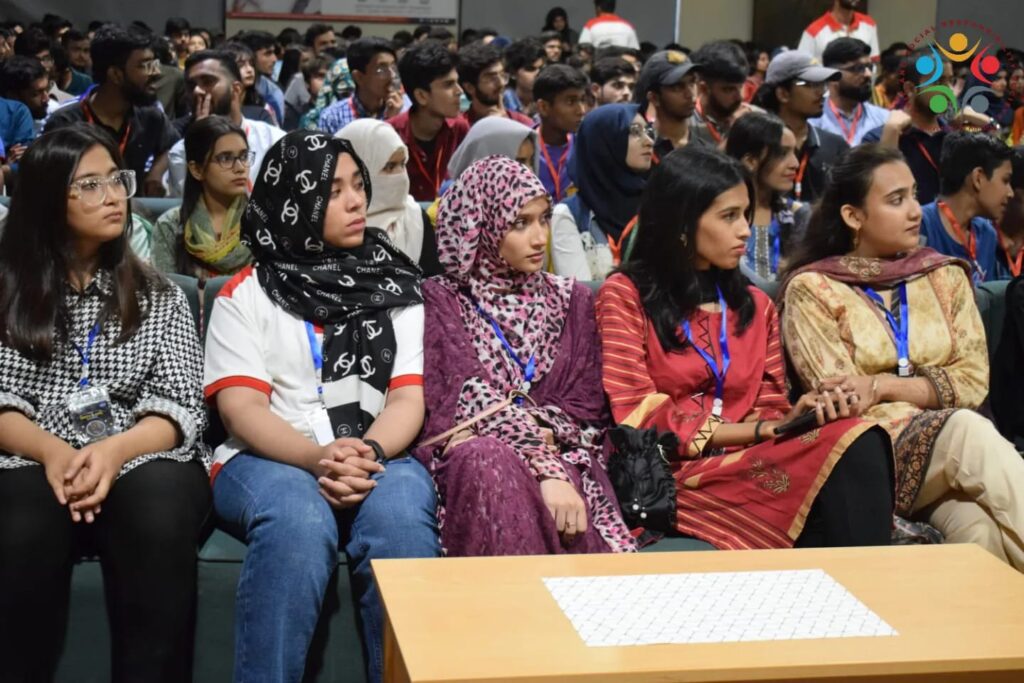
NED Univeristy events
Later, from 04 – 06 October, a recently found Computational Astrophysics Lab at the NED University of Engineering and Technology, hosted a three-day seminar celebrating- World Space Week 2022 (Supported by NCGSA, NCBC & CIS Department), where different speakers were invited from the European Space Agency, SUPARCO, Institute of Space Sciences & Technology – Karachi University and NED’s CIS Department to give talks, present their research and discuss new ideas within the field.
The event was also attended by professionals and many students interested in the advancement of Space and Astronomy. Interestingly, the astronomical observations of the Solar System objects were held, where the participants were shown the “Craters and Mountains of the Moon and Rings of Jupiter, and its three visible Moons”, a great initiative by Dr. Ali Ismail (Chairman, CIS Department) and Ms. Hira Fatima under the arrangement of the Computational Astrophysics Lab, where she also gave her talk on the “Revolutionizing Star Clusters Research through Gaia and Machine Learning”, an interesting topic for students interested in the stellar evolution and formation of clusters.
The event also hosted renowned speakers within the field of space sciences- Dr. Prof. Jawed Iqbal (Director of ISST), Dr. Gaitee Hussein (Head of ESA – Science Division), Dr. Aquib Moin, and Engr. Absar Ahmed Khan, while interestingly for the first time Engr Mehdi Hussain (President of KAS and Founder Mareekh Dynamics) also attended the event, and disclosed his startup work and aims, how they have worked on designs that will host one of the first Martian settlers, and highlighted that how, a lot of work is needed in the engineering domain, for future colonization of the Red Planet.
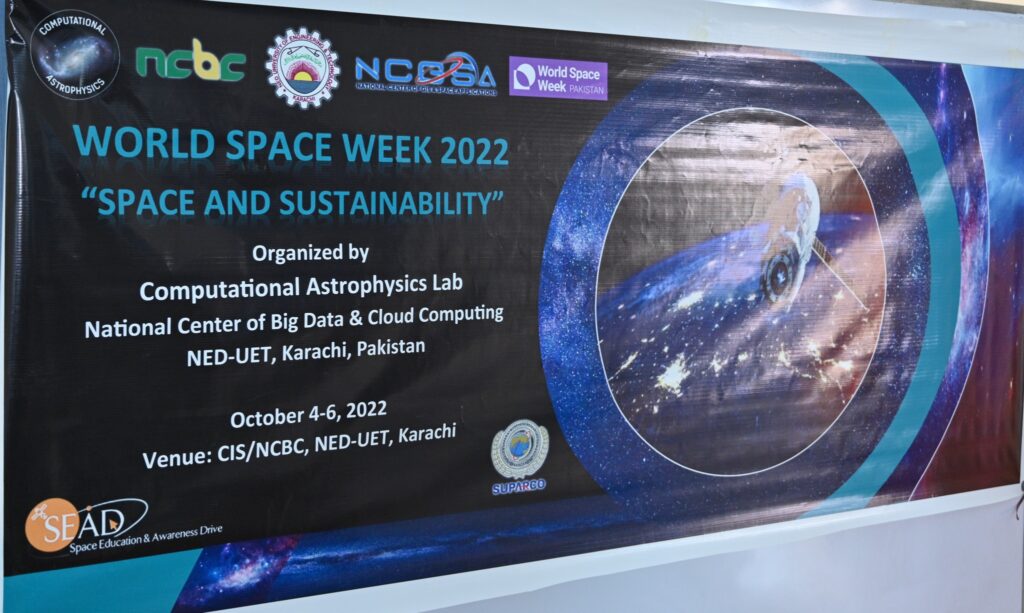
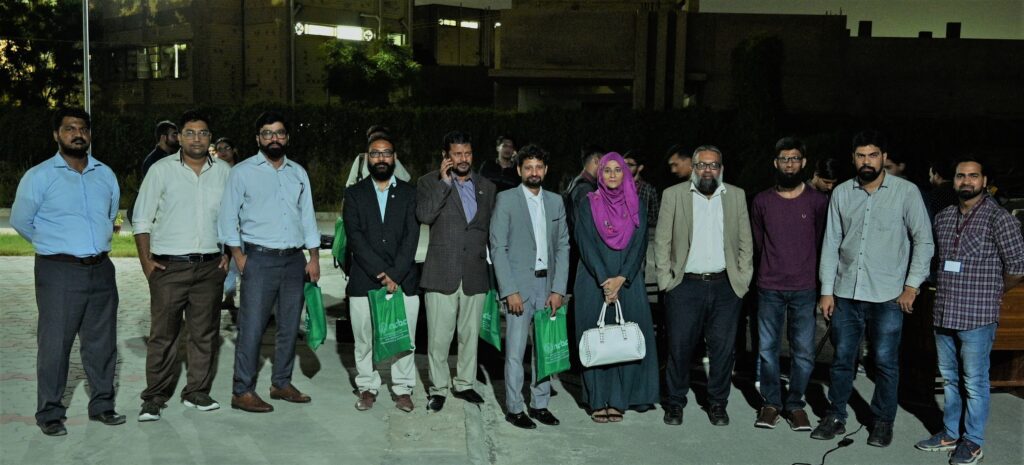


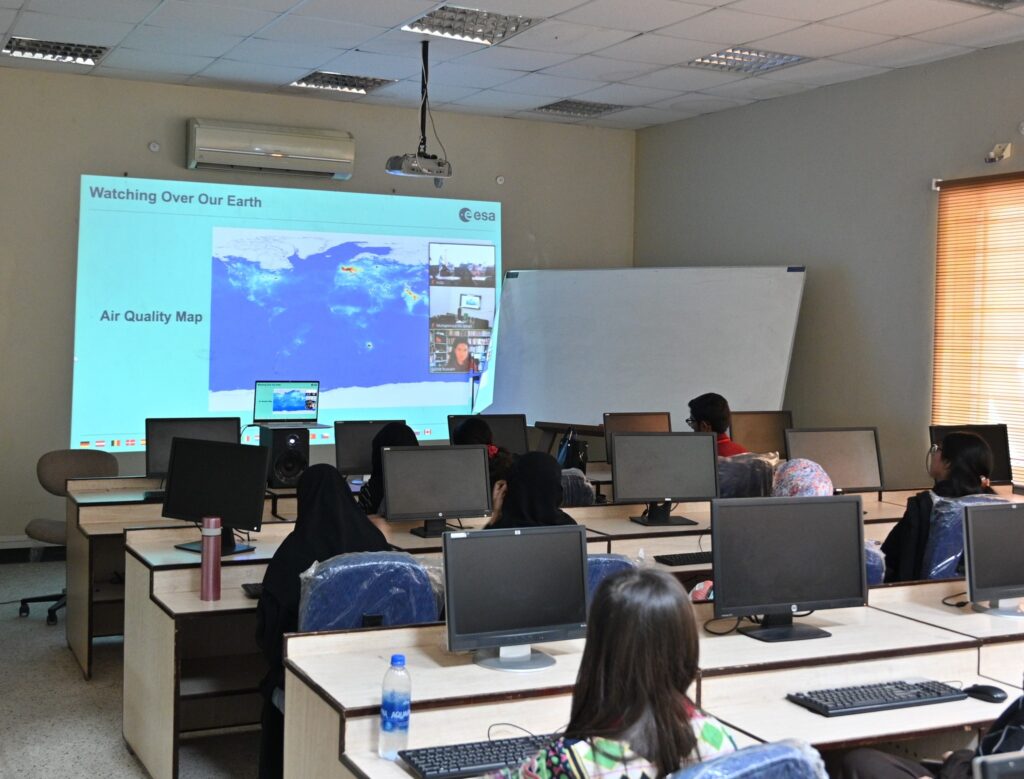

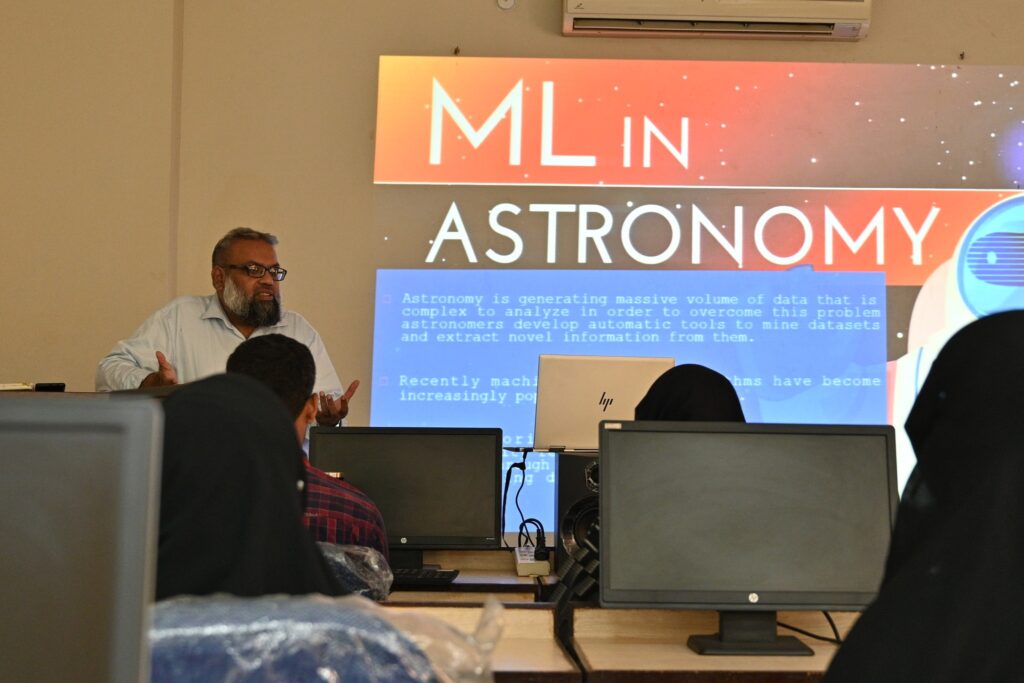



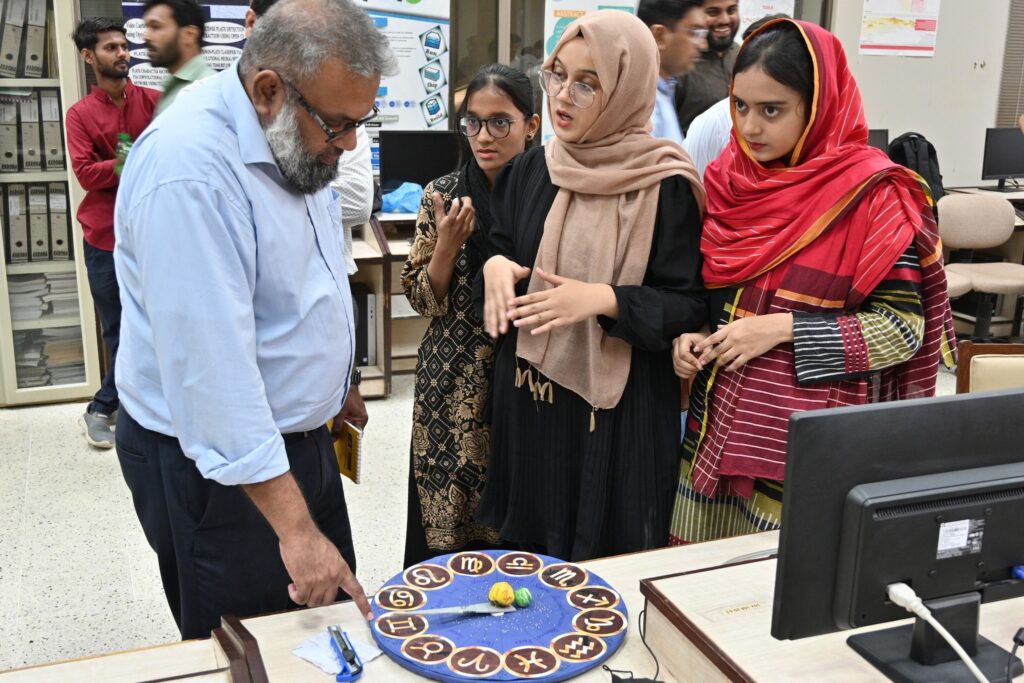


ISST seminar
The last, but the most attended seminar in the city was held at the Arts Auditorium of Karachi University, arranged by the Institute of Space Sciences & Technology in collaboration with the University’s Geography Department. The event started with Dr. Prof. Jawed Iqbal’s opening session, where he emphasized “How important for us to understand this new age of space, how Artificial Intelligence is playing its role in the field of Space Sciences, and how young students should develop skills and basic research methods” that can help them in excelling in the Space Industry and sustain in the current era of knowledge-based economy, where the space is for everyone, to work and change the world while referring to this year’s theme of “Space & Sustainability”- WSW 2022.

The event hosted SUPARCO senior officials such as Mr Ayaz Amin, GM Laghari, and Ex-Director SEADS Colonel Retd. Abdul Sattar. From academia, the event had invited talks of Prof. Dr Sultan Hameed from Stony Brookes University- USA, Dr Aquib Moin- UAE Space Agency, Dr Javed Qamar ISST’s founder, Dr Bilal Siddiqui FRAeS (CEO & Founder of Woot Tech), the company that manufactured Foodpanda’s drone, Dr Mirza Jawad Baig- who gave an interesting talk on the Climate Change, Engr. Absar Ahmed Khan discussed one of his research analyses based on possible Martian Flight through a fixed-wing perspective.
Later within the area of Geoinformatics, Dr. Sheeba Afsar (Chairperson, Department of Geography), Rao Zahid Khalil, and Nasir Khan, explored different case studies within the area of Geographical Informations Systems. The event ended in the late evening, and a huge number of students, professionals and space enthusiasts attended the event, making it the largest seminar on Space Sciences in Karachi for WSW 2022.
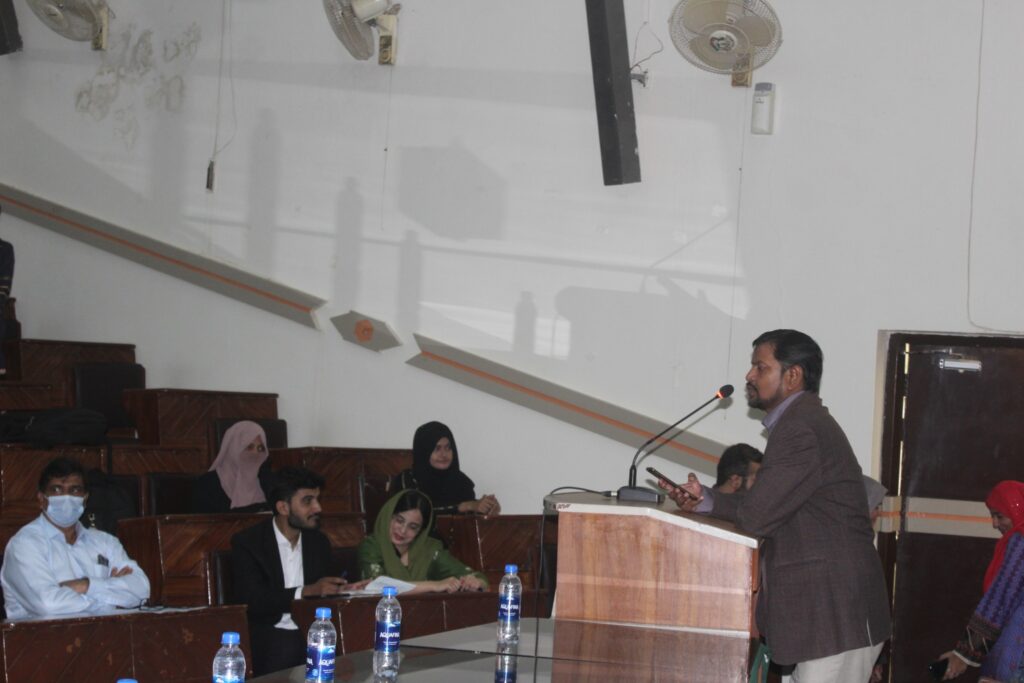
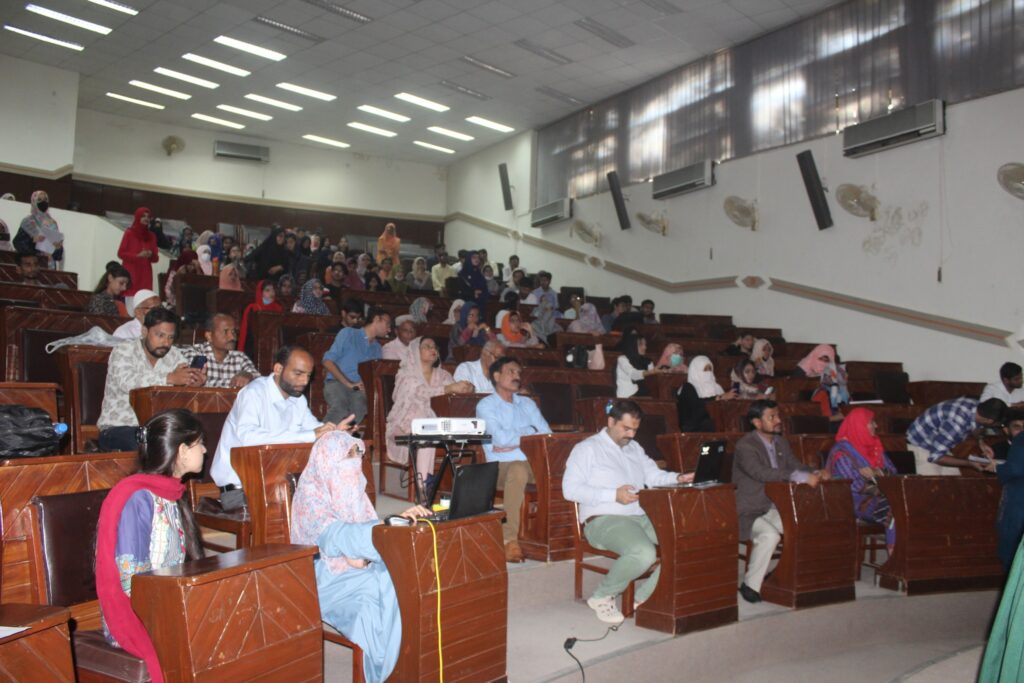
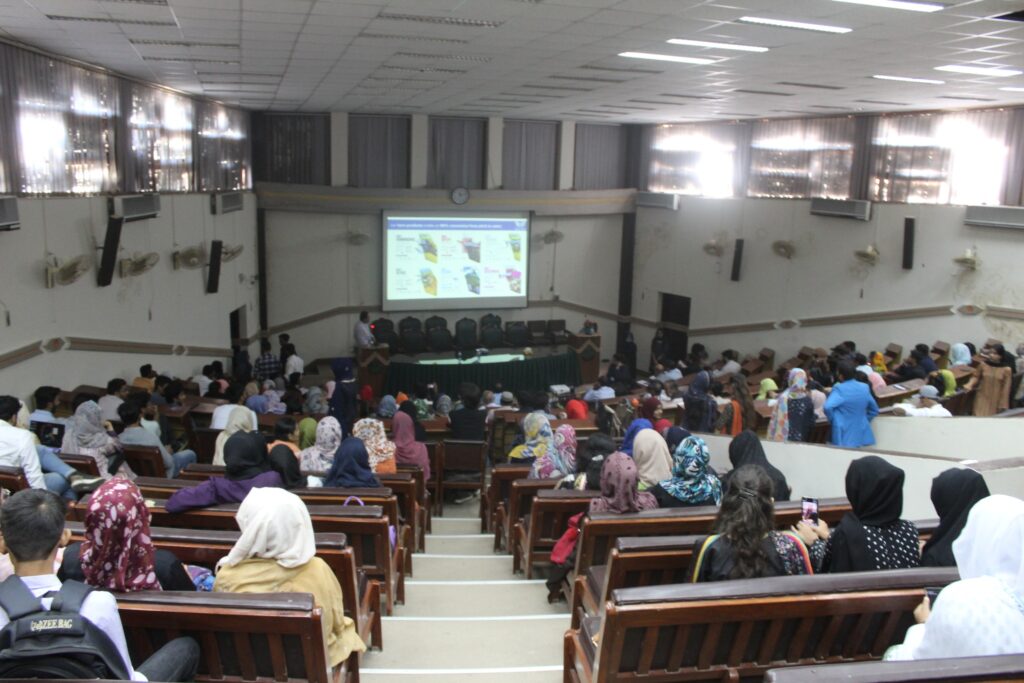
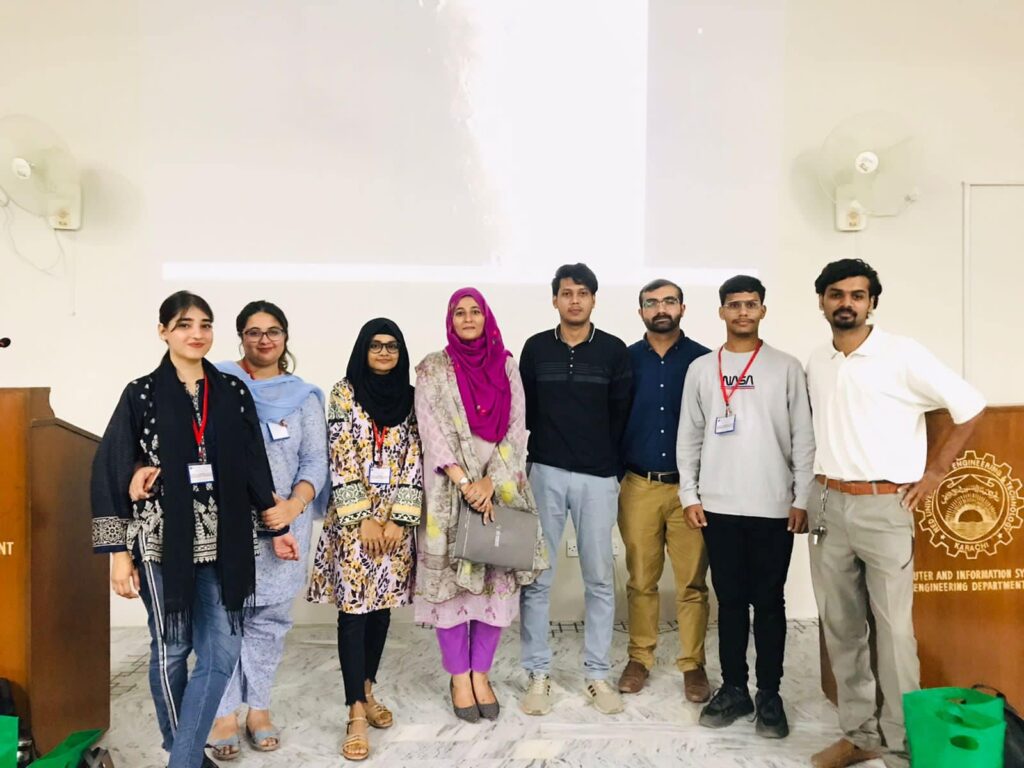
TDF Magnifiscience center event
Celebrating WSW in Karachi was never this thrilling for space enthusiasts, as the city hosted events for the whole week, for its small but vibrant space community. The PIA Planetarium with the support of the Karachi Astronomical Society hosted public observations of the Moon, where a huge number of public turned out, and the city’s prestigious science centre- The TDF Magnifiscience Centre hosted Rayan Khan’s through his venture Cosmic Tribe, hosted Lunar activities for the kids, and public.
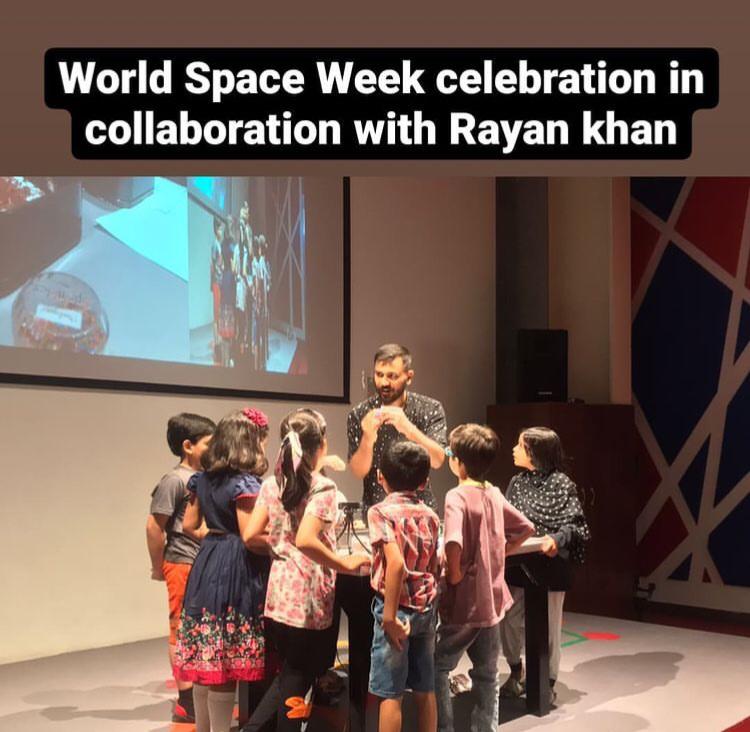
He educated the children that why it is important to control “Light Pollution” and what efforts they can put to change the discourse of rapid urbanization, which is affecting the “Dark Skies” of the country. This week, for the first time, established that the Space Community, is active and alive, how young students intend to change the narrative of Space Sciences within the country, and how Pakistan can contribute its role in the global space race. SPACE is for Everyone!
Also, read: Promoting Science and Innovation through “Edutainment”

Fouz Siddiqui is a writer, academic and scientific management person. Presently, he is a Co-founder and Chief Information Officer at Scientia Magazine. As CIO, he oversees the implementation and strategization of Scientia’s technological and scientific vision. Concurrently, In academia, he holds a Lecturer and QM position at ATH – IST. As an academic, his research interests are Exoplanetary Sciences within Astronomy. Furthermore, he also works with Kainaat Studios, as its Manager of Science Outreach.
